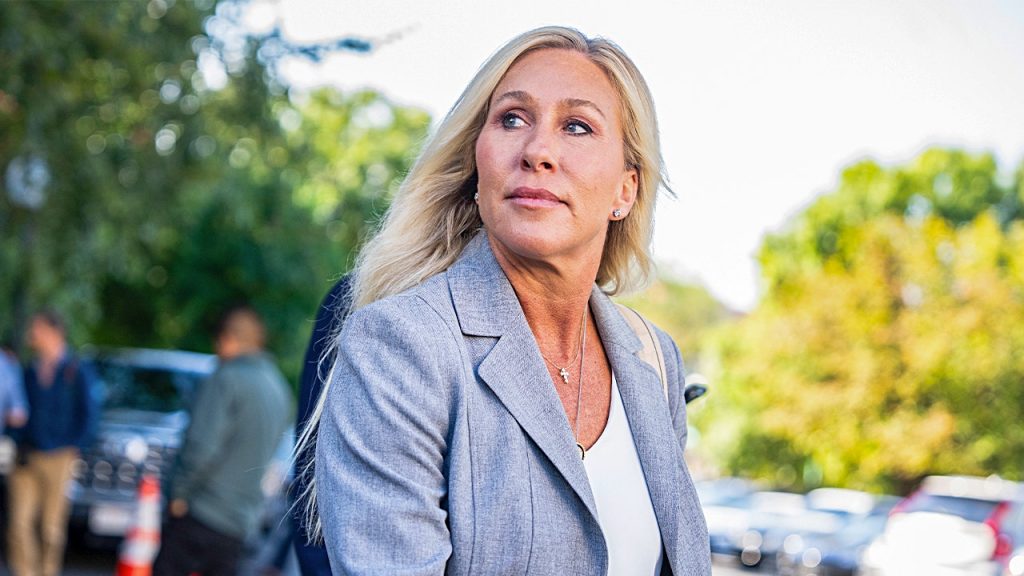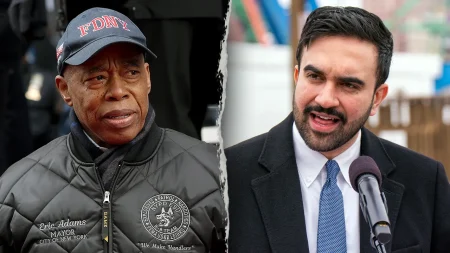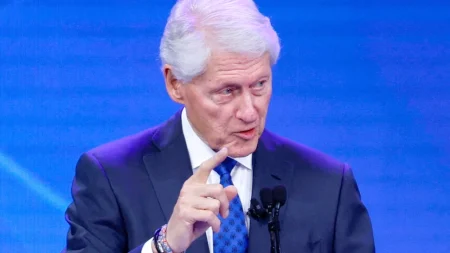Raskin’s “Big Tent” Comment Sparks Controversy Among Democrats
In a surprising moment that left many Democratic supporters stunned, Representative Jamie Raskin of Maryland suggested that his party would welcome conservative firebrand Marjorie Taylor Greene if she chose to switch sides. Speaking at the “Blue Bash Brunch” Democratic fundraiser in Miami on Sunday, Raskin’s comment about the Georgia Republican congresswoman was met with audible boos from the audience. The unexpected invitation comes amid growing tensions between Greene and Republican leadership, including a very public falling out with President Donald Trump. Raskin’s remarks highlight the complex dynamics of American politics today, where traditional party lines are increasingly being challenged by individual politicians’ evolving stances on key issues.
Raskin’s appeal for a more inclusive Democratic Party formed the centerpiece of his speech to Florida Democrats. “We are a big tent. We must be a huge, vast tent,” he declared, before making the statement that caused such a stir: “I say, this is a party that’s got room for Marjorie Taylor Greene, if she wants to come over. We got room for anybody who wants to stand up for the Constitution and for the Bill of Rights today.” While clearly intended to emphasize the Democratic Party’s openness to diverse viewpoints, many attendees seemed uncomfortable with the specific mention of Greene, who has built her reputation as one of Congress’s most outspoken conservatives. Despite the audience’s negative reaction, Raskin’s broader message emphasized the importance of welcoming those who prioritize constitutional values, regardless of their previous political affiliations.
The context for Raskin’s unexpected olive branch stems from Greene’s increasingly complicated relationship with her own party. Once considered one of Trump’s most loyal supporters, Greene has recently broken ranks on several key issues. She has criticized GOP leadership’s approach to health care and taken a controversial position on Israel, describing its military campaign in Gaza as a “genocide” and “humanitarian crisis” – language that stands in stark contrast to mainstream Republican rhetoric. Perhaps most significantly, Greene has pushed for the full release of documents related to Jeffrey Epstein, the deceased sex offender whose case has continued to generate intense political interest. This stance put her at odds with Trump, who initially opposed the release before changing his position after bipartisan support for disclosure became apparent in the House.
The fallout between Greene and Trump has been particularly dramatic, with the president withdrawing his endorsement of the Georgia representative and labeling her a “traitor” – a serious accusation that Greene claims puts her safety at risk. “I remain the same today as I’ve always been,” Greene responded on social media, “and I will continue to pray this administration will be successful because the American people desperately deserve what they voted for.” The public nature of this rift exemplifies the increasingly fractured state of Republican Party unity, where loyalty to Trump has often served as a litmus test for conservative credentials. Greene’s willingness to break from the president on certain issues, despite her previous steadfast support, illustrates the complex personal and political calculations representatives must make in today’s polarized environment.
Beyond his controversial invitation to Greene, Raskin used his speech to redefine political labels in ways that challenge traditional assumptions. Despite identifying himself as both a “liberal” and “progressive,” he made the unexpected claim that his “favorite thing to call myself today is a conservative.” He explained this apparent contradiction by emphasizing his desire to “conserve the land, the air, the water, the climate system, the Constitution, the Bill of Rights, Social Security, Medicare, Medicaid, the Affordable Care Act,” and numerous other progressive achievements. This rhetorical strategy attempts to reclaim the concept of conservation from its typical association with right-wing politics, positioning Democrats as the true defenders of America’s most valuable institutions and natural resources against what he characterized as an “authoritarian” threat from the Republican Party.
Raskin concluded his remarks with a unifying message that sought to transcend conventional political categories: “We are the party of the conservatives, the liberals and the progressives. All the patriots today are in the party of democracy. That’s who we are.” This framing presents the Democratic Party not as a coalition defined by left-leaning ideology, but rather as a broad alliance of citizens committed to democratic values regardless of where they might otherwise fall on the political spectrum. In the context of his earlier comments about Greene, Raskin’s vision suggests a political realignment based on commitment to constitutional principles rather than traditional partisan identities. Whether this approach will resonate with voters – or even with members of his own party who booed the mention of welcoming Greene – remains to be seen as both parties navigate an increasingly unpredictable political landscape ahead of future elections.















